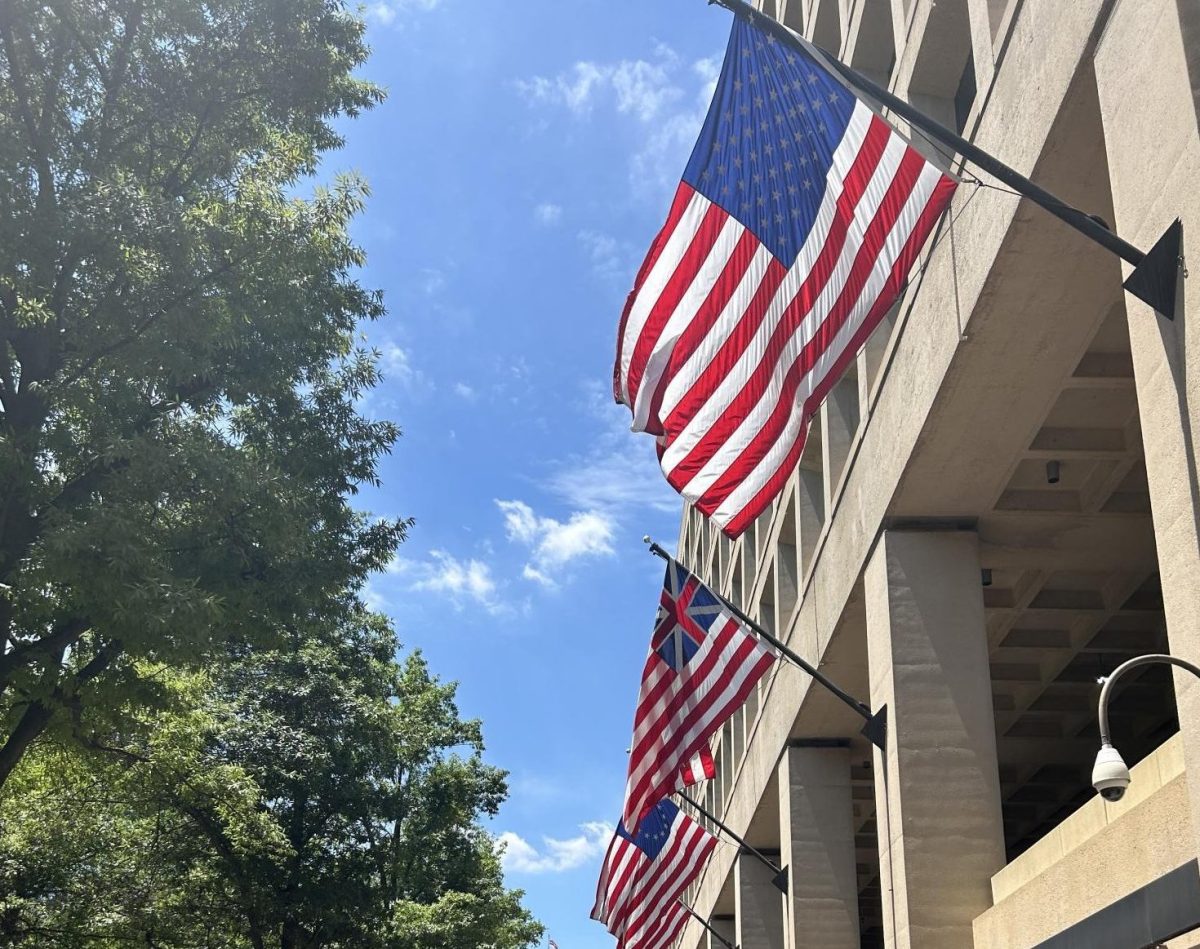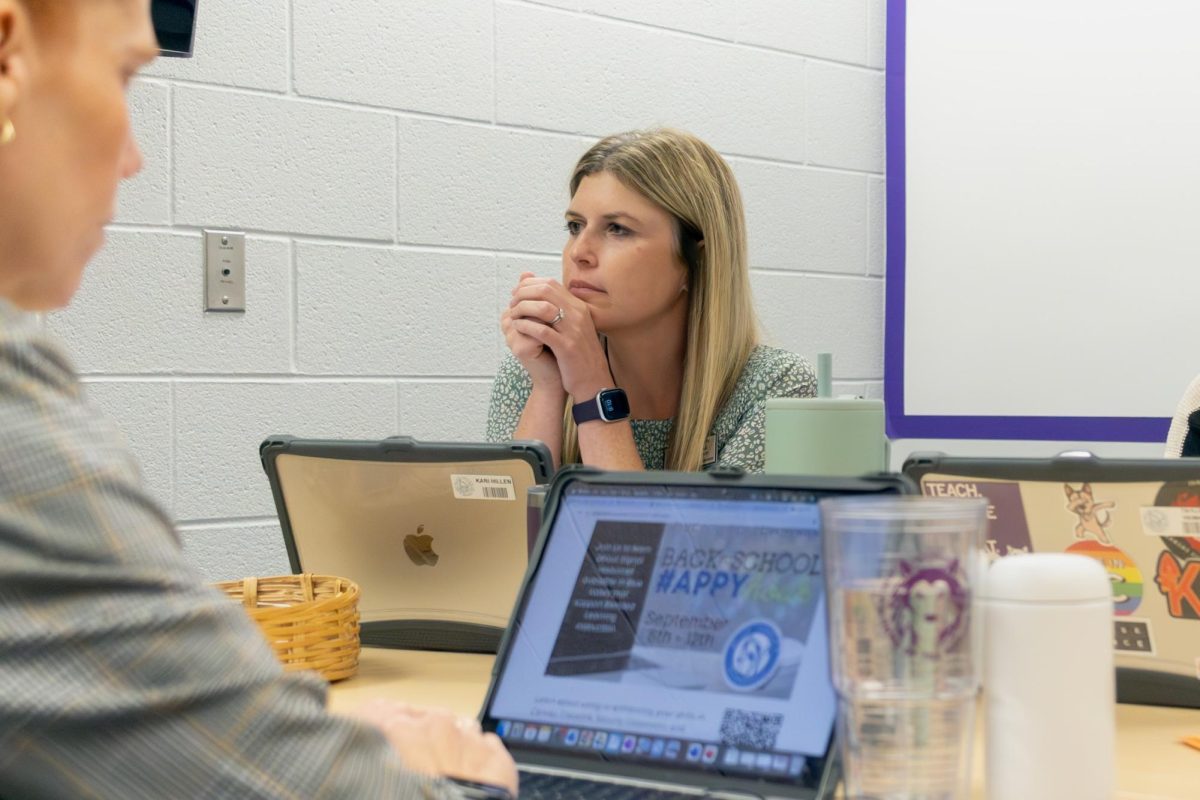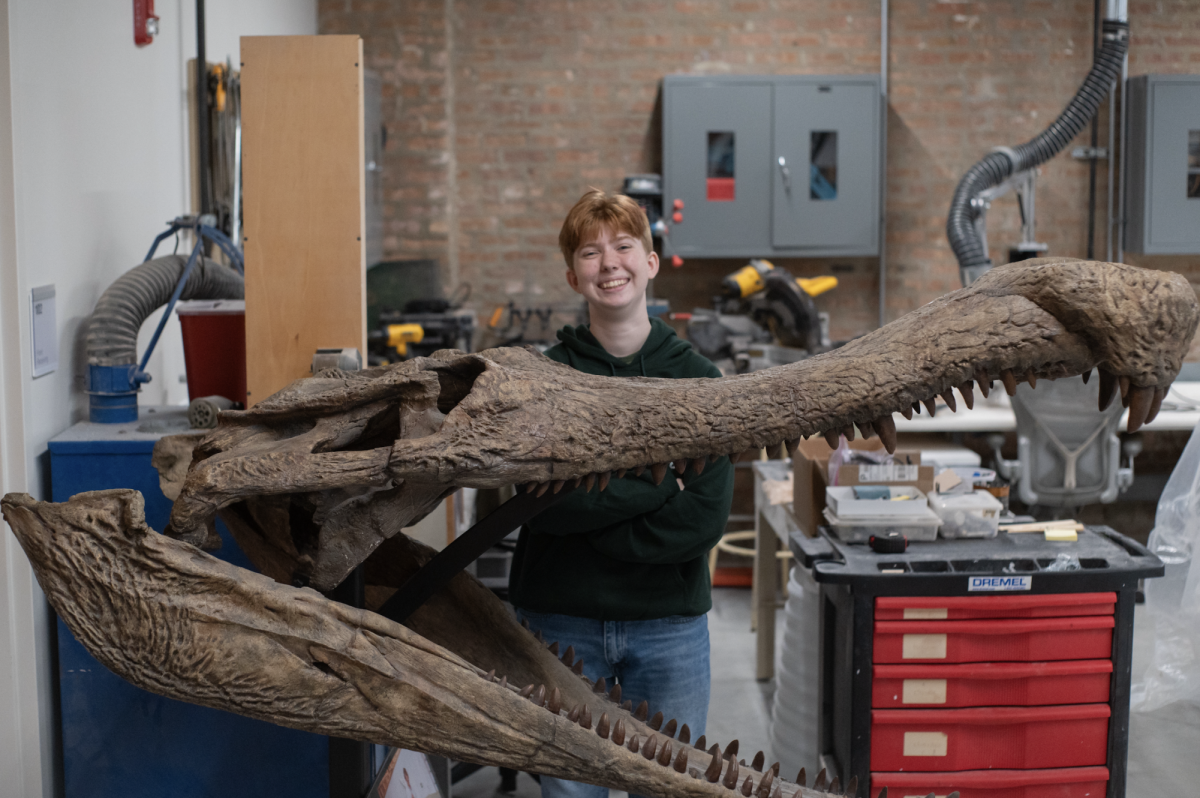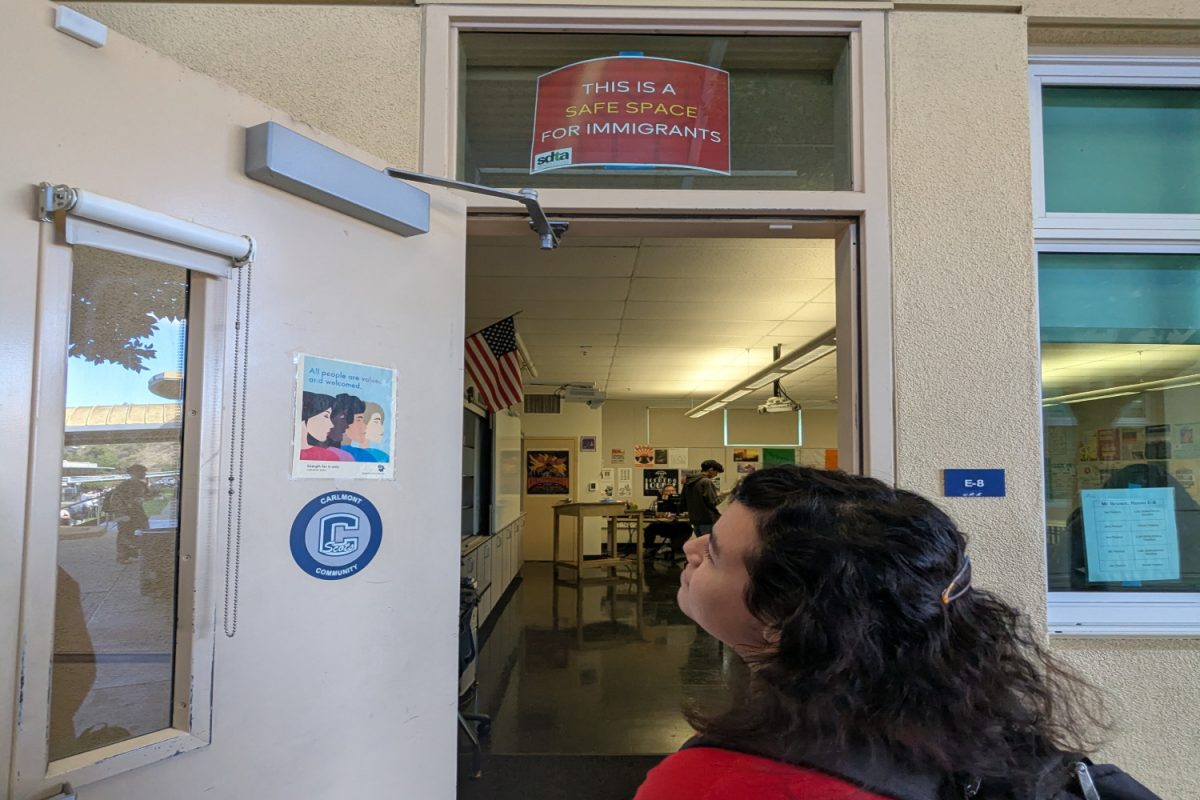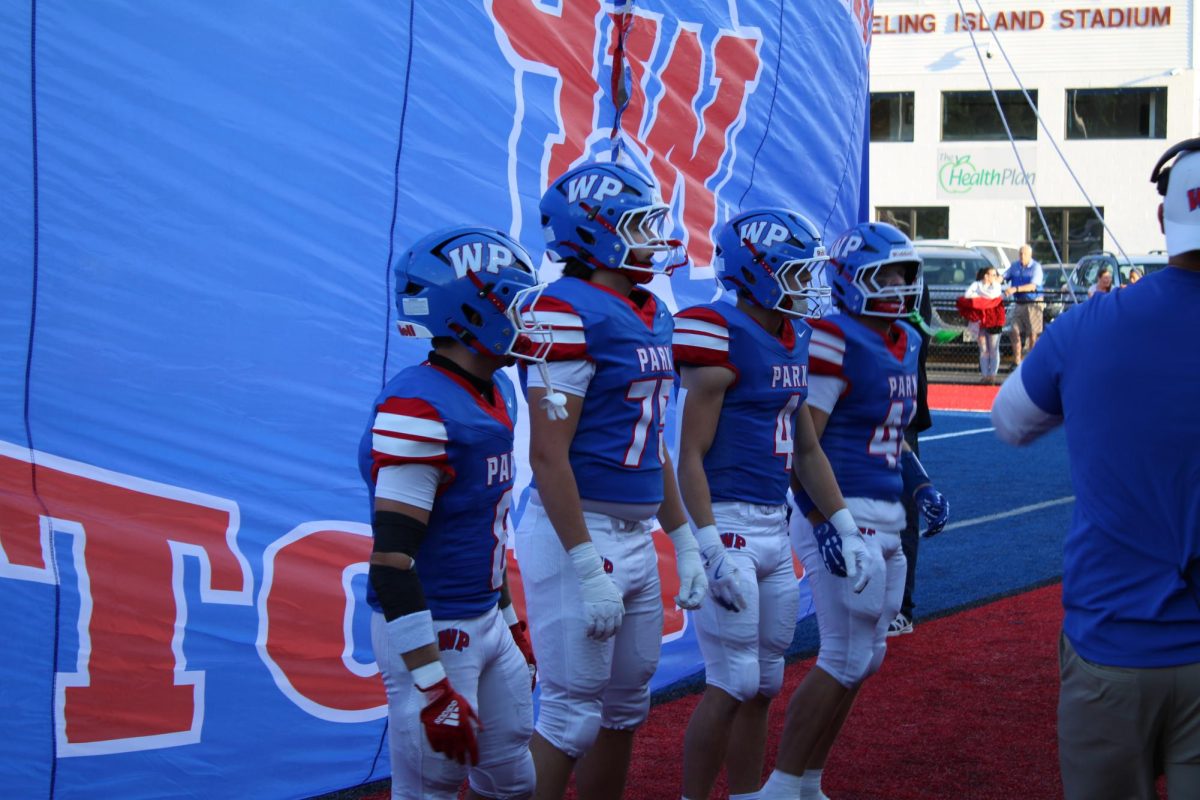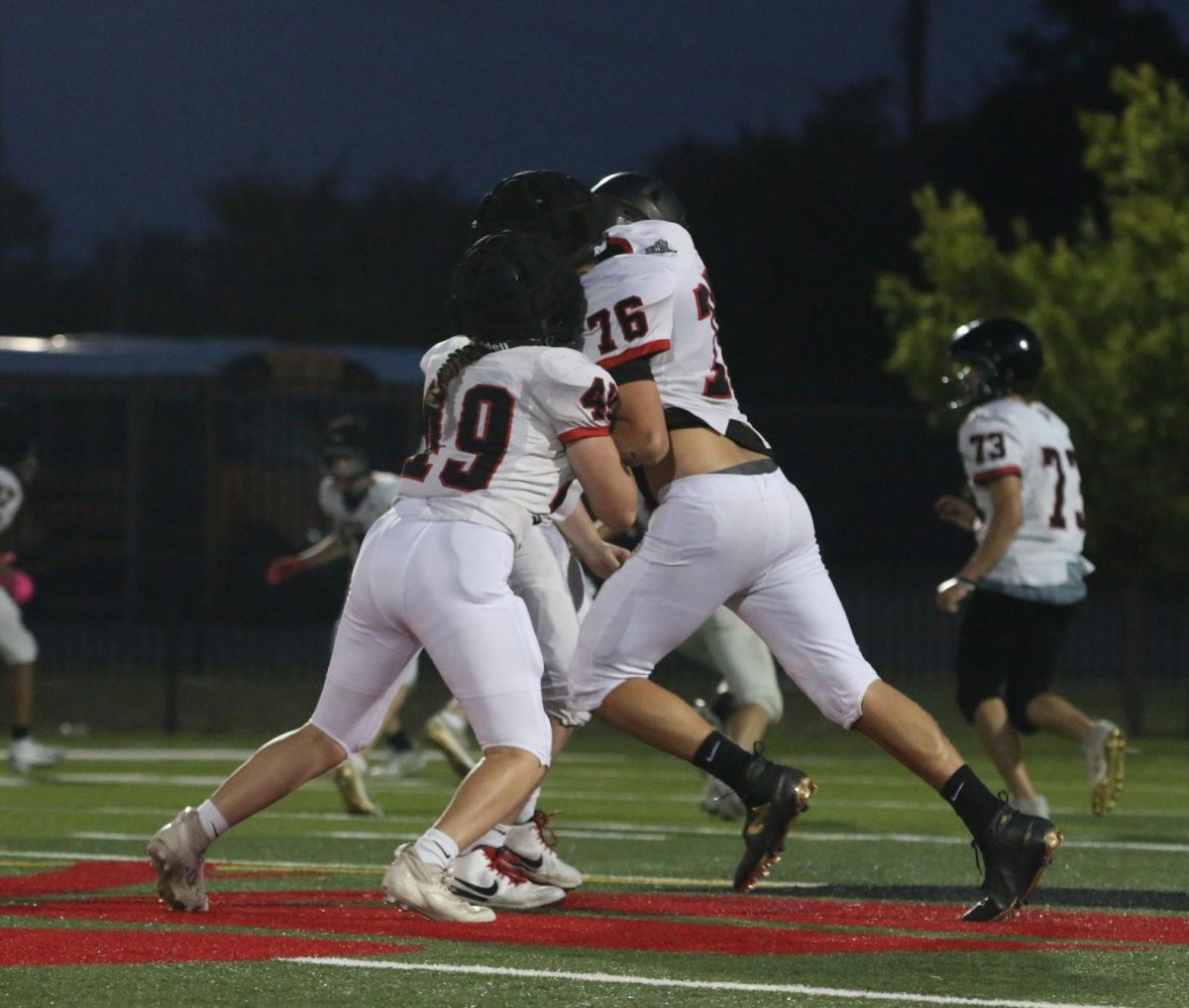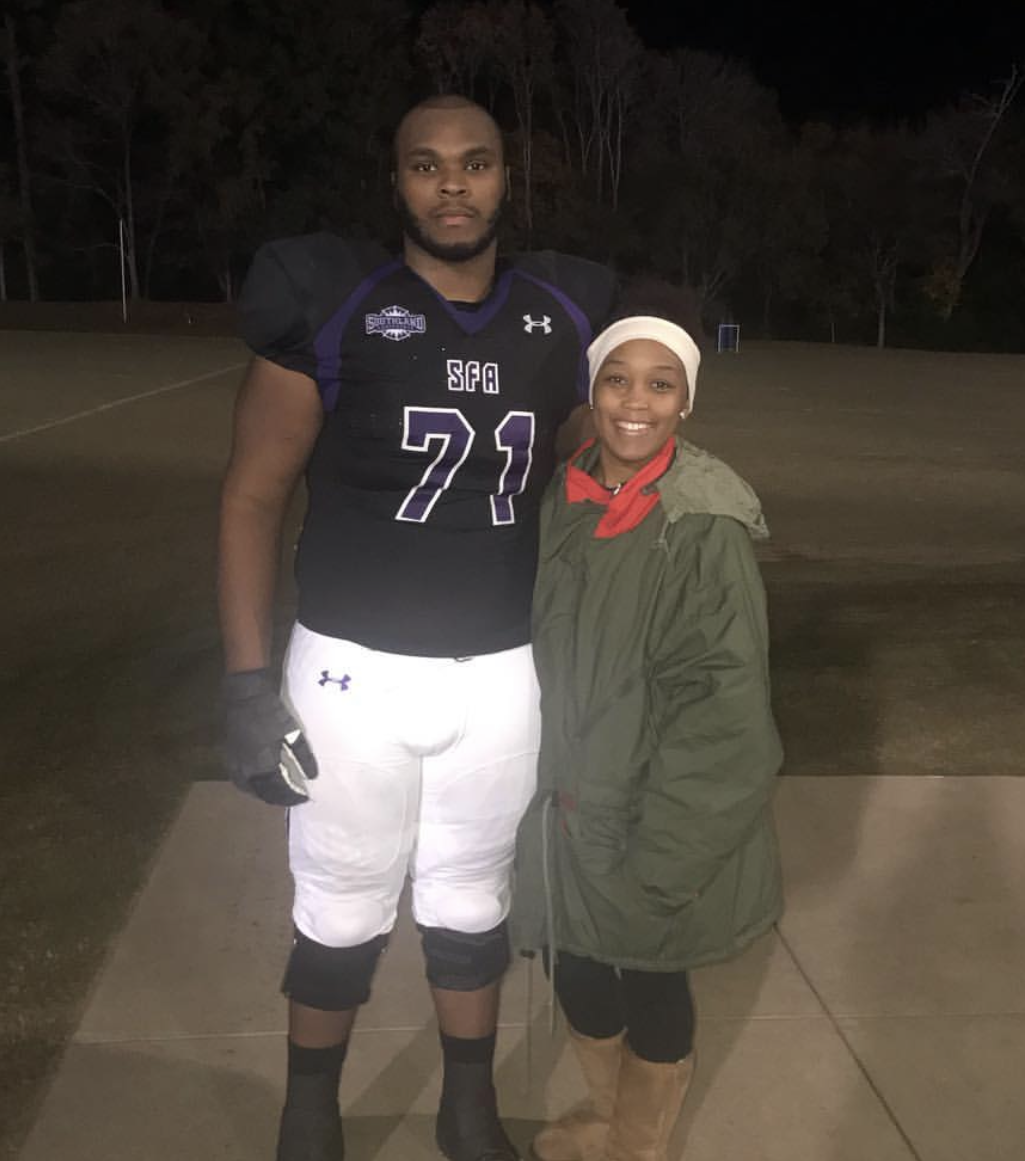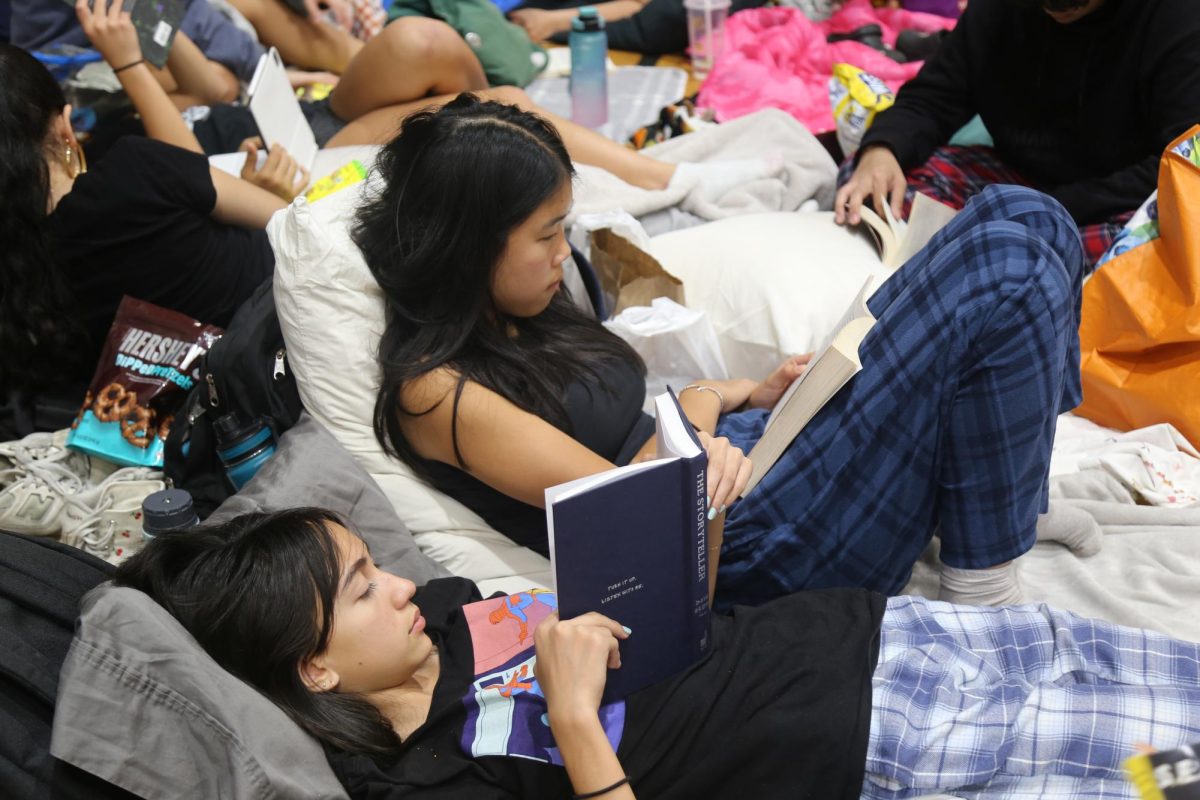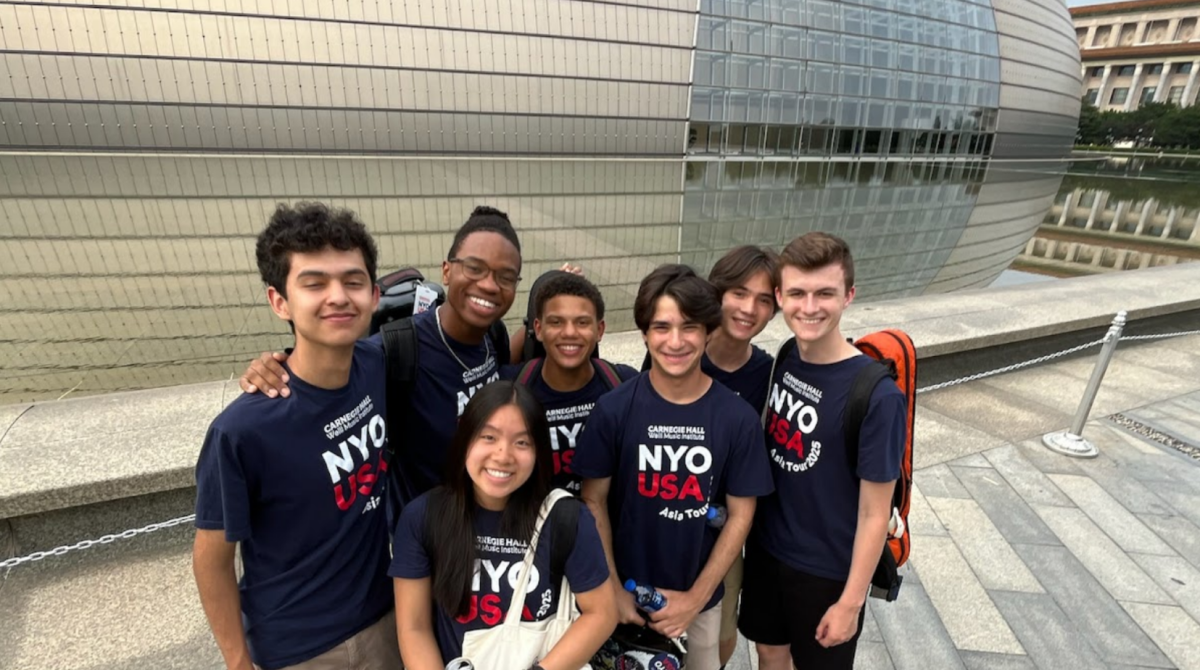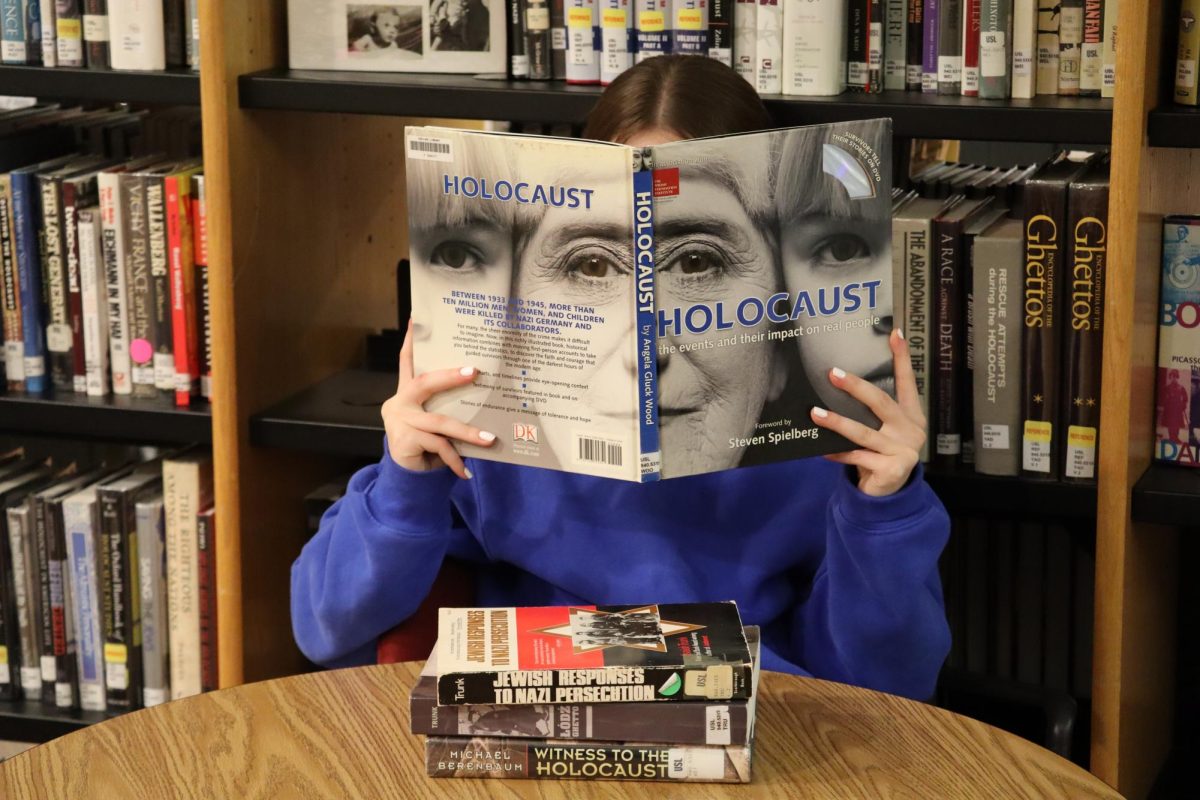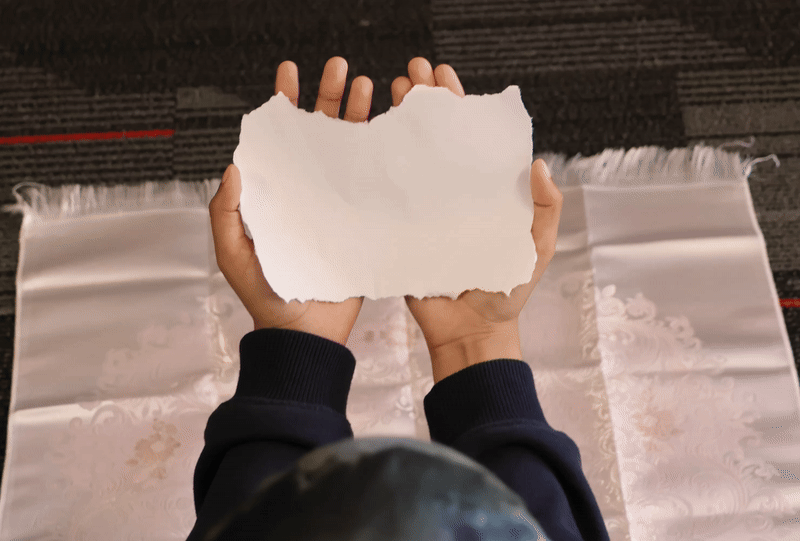Director Spencer Cohen and Producer Alberto Sayan have been best friends since middle school, both growing up in Natick, a town neighboring Wayland. Although they played sports together and graduated from Natick High School in the Class of 2011, it wasn’t until their senior year of high school that Cohen became aware of a truth about his best friend: Sayan was an undocumented immigrant from Peru.
Over a decade after their senior year, Cohen and Sayan collaborated on a film titled “The Compatriots,” which is loosely inspired by their own coming of age story. It follows Javier, played by actor Rafael Silva, navigating his fears as an undocumented immigrant and rekindling the friendship of his lively friend Hunter, played by actor Denis Shepard.
On Sept. 14, the film’s hometown premier took place at The Center for Arts in Natick. It is now available for streaming on Apple TV and Fandango. “The Compatriots” has won several awards, including the audience award at the 2024 Woods Hole Film Festival. Half of the proceeds from ticket sales at the premier were donated to the Massachusetts Immigration and Refugee coalition.
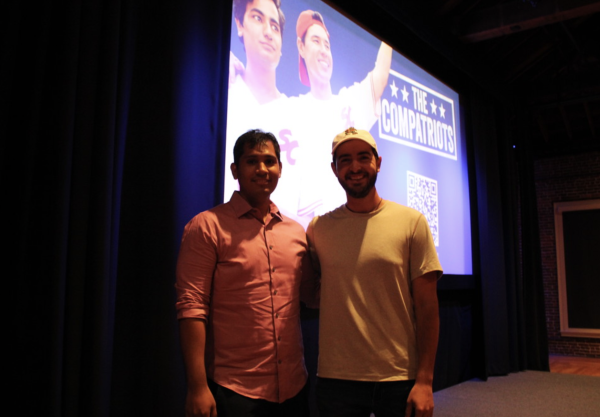
Growing up together
Cohen started making movies at the age of 10, when his father brought home an HD camcorder. From there, Cohen’s filmmaking skills took off. From recording his sisters to creating high school projects and movies, Cohen found his love for film. He eventually went to film school at the University of Miami.
“I always knew I wanted to make a feature around the time I turned 30,” Cohen said. “The idea never really came to me until I found something that was so personal and something that I really cared about and believed in.”
The idea was triggered in 2017, when the Trump administration attempted to ban the Deferred Action for Child Hood Arrivals (DACA) policy. When DACA was established in 2012, Sayan, along with over 100,000 other immigrants, could live out their lives in the U.S. with a temporary protection status. These children are often known as “Dreamers.” This not only protected Sayan from deportation, but it also allowed him to receive in-state tuition from Framingham State University. The ban was overturned by the Supreme Court, but it threatened the lives of hundreds of thousands of immigrants, including Sayan.
“There are a couple million dreamers who were brought here, and a bunch of them have some sort of temporary status through DACA, but a lot of them don’t,” Cohen said. “They are all around us, they are your nurses, your teachers and they deserve our respect.”
Cohen and Sayan had different experiences as high schoolers. As an undocumented immigrant, Sayan was cautious of running into legal trouble. For example, he would avoid driving with friends who were still on their Junior Operating License. Cohen grew to be understanding of Sayan’s situation, who faced the risk of being deported. Unfortunately, not all people Sayan told were as empathetic as Cohen. Misunderstandings about immigrants in terms of violence can lead to people having less empathy for undocumented citizens.
“When I would tell my friends about [my documentation status], the question that I would get a lot is ‘why don’t you become a citizen?’,” Sayan said. “In itself, it is an ignorant question, but I’m glad that they ask it because it comes from a good place.”
Silva was also one of the thousands of immigrants living in the U.S with an uncertain status at the time. He says both Javier’s fictional journey and the real life journey of Sayan were similar to his own family’s experience.
“My family waited for about 11 years in this sort of liminal space of immigration proceedings, where we didn’t hear anything from anybody,” Silva said. “It felt almost like a prison, you can’t leave the country because if you leave the country, that’s it, your process is gone.”
Cohen said that he too noticed that “prison-like” feeling in his best friend after he found out Sayan was undocumented. He describes that certain things started to fall in place for him about his best friend.
“It made sense to me why he didn’t want to stay late at parties [or] didn’t want to go to certain parties altogether, for fear of underage alcohol consumption and things that could happen at those events,” Cohen said. “He wouldn’t offer an explanation, he just said ‘I don’t feel comfortable.’”
Cohen depicts these traits about Sayan in the film when Javier shares similar worries about going to parties and getting in trouble. In the movie, Javier does get caught by the police at a party, being escorted back home and then yelled at by his father. This is where Hunter, Javier’s best friend, starts to notice the same worries about Javier that Cohen noticed about Sayan.
When writing, Cohen would use Sayan for guidance when it came to covering the cultural aspect of Sayan’s Peruvian heritage. Their childhood friendship spanning decades was key to their collaborative process and the themes of the film.
“The strength of the friendship is kind of the main driving force of the film,” Cohen said.
Filming and Writing ‘The Compatriots’
By the end of writing, the film had a total of 150 pages of script. Prior, Cohen had around 250 pages of deleted scenes. He started writing when he was 22 years old and finished 10 years later at the age of 32.
“Writing is rewriting, so you’re not usually done the first time you write, even an essay or something like that,” Cohen said. “It really is going in with a fine tooth comb and figuring out what works [and] what doesn’t work.”
The film was shot exclusively in Massachusetts. The Dudley Chateau, a local bar and grill, and another restaurant in Wayland were featured in the film as the setting of a party and Javier’s place of work.
Many of the scenes were shot in places where Sayan and Cohen would go to when they were younger. For example, several of the scenes were shot at Natick Center and the 7-11 in Natick where Sayan and Cohen would go to drink slurpees as kids. They also shot college scenes at Framingham State University, where Sayan attended college.
“It was cool and emotional to film the places where Alberto and I hung out [when we were growing up],” Cohen said.
Another addition to filming in Massachusetts is that there is a 25% tax credit, meaning that when more than 75% of the filming takes place in Massachusetts, the state will pay for 25% of the production.
“In regards to budget, it’s much easier to shoot here,” Cohen said. “People want you here, whereas in other states, especially somewhere like [Los Angeles] or New York, they’re like, ‘get out of here.’”
In order to save as much money as they could, the filming process was cut to 20 days. During those 20 days, Cohen set up a home base for the cast and crew at his current residence and childhood home, which meant plenty of crew trucks at his house. So much, in fact, that it alerted the attention of a worried neighbor, which ended with a Wayland police officer at Cohen’s house.
“I had the actors in my house and just running through all the scenes to workshop them and make sure it sounded super realistic and they were,” Cohen said. “When you’re writing something by yourself, you might think it sounds good, but until you actually hear it come out of an actor’s mouth, you don’t really know for sure.”
Cohen altered some parts of their real story to add more narrative to the “Compatriots,” like when Javier and Hunters falling out, but strived to remain true to the heart of the story. Cohen said that one of the main notes he got during writing was that Javier needed something to make him “special” and make viewers want to root for him to stay in the U.S.. Cohen explained that he immediately rebelled against that note, saying that he didn’t think Javier needed a reason to be in this country, and he deserved to be here just the same as the next person.
“In writers speak it was like ‘why should this person have to be special?’,” Cohen said. “He’s special in that he is a wonderful friend, a wonderful person and someone who really helps the fabric of this nation, and you shouldn’t have to cure cancer or be super rich to be able to stay in the country.”
This story was originally published on Wayland Student Press on September 30, 2025.


